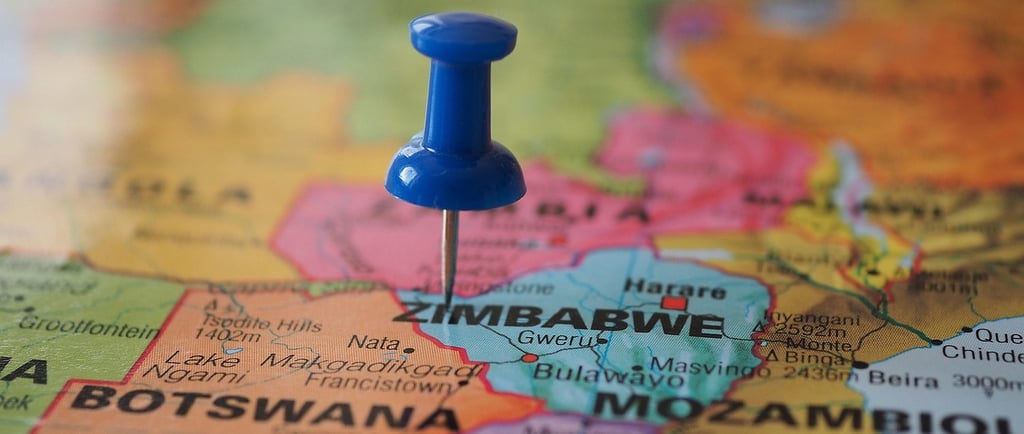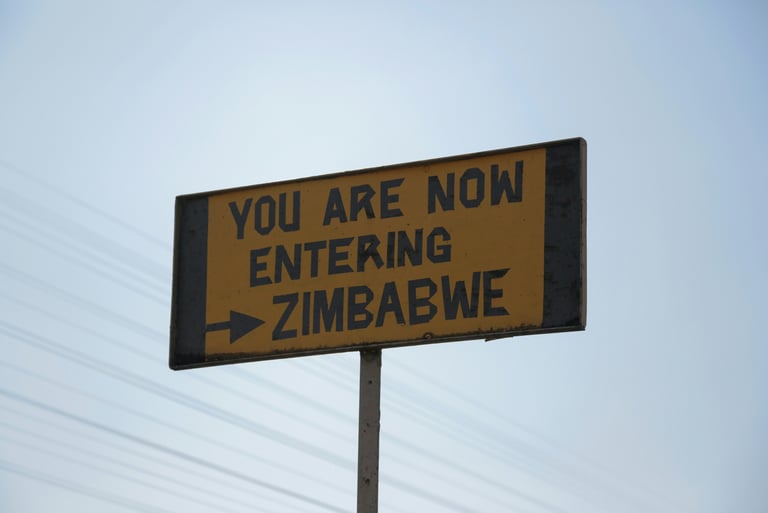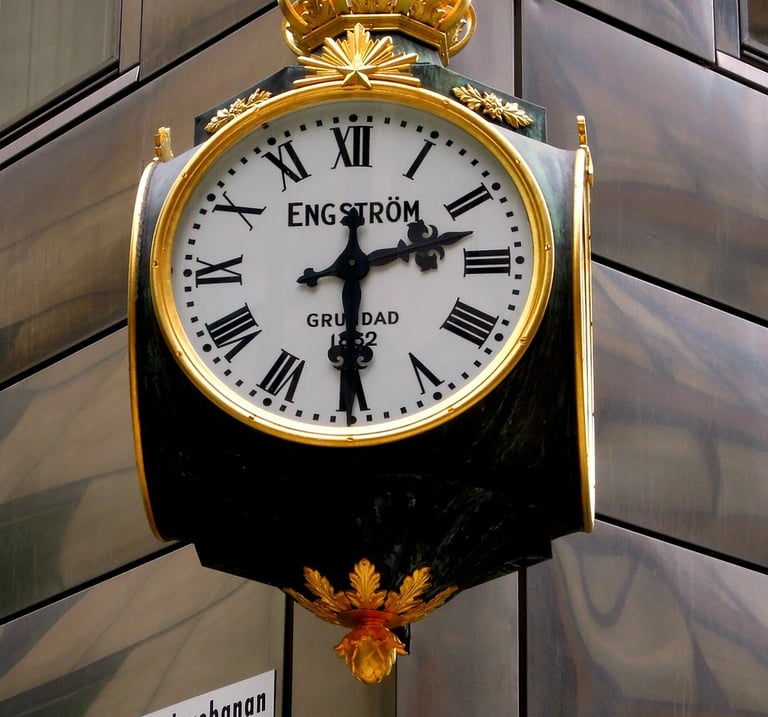First Impressions: 5 Tips on What Swedes Should Expect When Arriving in Zimbabwe
Moving from Sweden to Zimbabwe — whether for work, business, or adventure — is a journey that is more than just geographical. It’s a cultural shift. First impressions matter, and they can set the tone for how you adapt, integrate, and thrive. If you’re a Swede preparing to land in Harare, Bulawayo, or anywhere in between, here’s what you might notice right away. In this post I share 5 tips on what Swedes should expect when arriving in Zimbabwe...and how to respond to it.
CULTURAL LENSTIPS FOR SWEDES IN ZIMBABWE
SANTINO ZHAKATA
5 min read


For someone who is used to Sweden and to how most people you walk by are busy minding their own business while at the same time granting you your full measure of personal space, it won´t take long to notice sharp differences shortly after getting off the plane in Zimbabwe. You will be met with warm curiosity, offers of hospitality and very little shyness. Zimbabweans seek connection, whether through eye contact, gentle greetings or even curious inquiry. The more you understand the cultural basis for this behaviour, the easier it will become for you to adapt.
This post will help you not only adapt, but also excel in the cultural nuances of Zimbabwe. I will add in a few examples taken from some Swedish acquaintances who have been kind enough to share their experiences of Zimbabwe with me, for the purpose of this blog. Let´s dive right into it!
Zimbabwe runs on connection, not just efficiency. If you prioritize people before schedules, you’ll integrate much faster.
4. The Environment: A Sensory Shift
If you’re coming from Stockholm in winter, Zimbabwe will feel like stepping into another world. The sun is generous, the streets are often busy with vendors, and there’s a vibrancy in the air — from music spilling out of minibuses to the sight of open-air markets full of fresh produce.
One Swede I met at a workshop who had travelled to Zimbabwe the previous year was happy to tell me about her first impressions. She spoke of her first trip to Mbare Market in Harare. The energy was overwhelming — sellers calling out prices, the smell of roasted maize in the air, kids laughing nearby, cars honking, someone whistling . At first it felt chaotic. But she later described it as “the heartbeat of the city,” and kept returning to the marketplace because it gave her a window into everyday life.
Tip for Swedes: Embrace the sensory overload. It’s part of what makes Zimbabwe come alive.Treat your senses to this vibrancy, while keeping them sharp at the same time and not getting distracted. The streets are more crowded, which unfortunately may provide good cover for pick-pocketers and bag snatchers. Best to keep personal possessions safe and secure.
1. Warmth and Hospitality: You’ll Be Greeted Before You Sit Down
In Sweden, you might pass someone on the street with a polite nod or, at most, a quiet "hej." In Zimbabwe, greetings are essential — they are the starting point of every interaction. A simple “Hello, how are you?” is often extended into a longer exchange, sometimes lasting several minutes. You might find yourself being asked about your health or your family, but all in an air of friendly concern rather than respectless intrusion. It is not intended as an intrusion or a violation of your privacy, but rather an action similar to extending a hand in offer of companionship, so try not to be offended by it. Why not take it a step further even and explain that in Sweden, such exchanges are not common. This will lead into a longer discussion of course, but also a leap in the direction of connections.
I remember once a Swedish colleague renting a house in Mutare told me how, on her first evening walk, she simply nodded to the neighbours sitting outside their gate, next to hers. Later, her landlord gently advised, “Here, you don’t just pass by. You stop, you greet, you ask about the day.” It was her first lesson in how greetings knit together the social fabric of a Zimbabwean neighborhood.
Tip for Swedes: Always greet people, especially those you see often or recognise, even if it feels small or unnecessary. It builds rapport and sets the right tone.
3. The Social Pace: Adjusting to “African Time”
Sweden is a country of punctual trains, structured schedules, and the sacred fika at precisely the right moment. Zimbabwe operates differently. While professionalism exists, life here has more flexibility — meetings may start late, buses may not arrive on time, and schedules often shift. The best way to respond to this is to go with the flow, as hard as that might be. You won't get a bad reputation because your taxi arrived late to pick you up or because you had to wait extra long for a lunch order at a restaurant.
While in Sweden arriving past the agreed time might signal your lack of respect for others´ time, since the whole system is time sensitive, in Zimbabwe most people might not be entirely the ones in control of when exactly they should be at point A or B, other elements may come into play. The bulk of people you will meet are also subject to these same delays here and there and understand it perfectly. When in doubt , always text someone to confirm or inform on your position. The risk with sticking to the Swedish standard of time while in Zimbabwe is that you may become frustrated of being the only one arriving first and half an hour or so earlier at a meeting or even a social gathering, as a friend of mine once did.
A Swedish friend of mine working at an NGO told me about his first board meeting in Harare. He arrived 10 minutes early, as any Swede would. He found the boardroom empty. Ten to fifteen minutes later, people trickled in, chatting casually. The meeting eventually began almost an hour after the scheduled time. “At first I was frustrated,” he admitted. “But then I realized people weren’t being careless. They were prioritizing relationships and making space for life to happen.”
Tip for Swedes: Take a deep breath and bring patience. Plan with flexibility. Over time, you’ll see that time in Zimbabwe is less about the clock and more about connection. Expecting on the minute clock efficiency leads to a lot of frustration and even worse, agitation against people.
5. Respect and Hierarchy: A Subtle but Important Difference
Sweden’s culture of equality means it’s not uncommon to address even your boss by first name. In Zimbabwe, hierarchy carries more weight. Elders and senior colleagues are accorded respect, often addressed by titles like Mr., Mrs., or Doctor. This respect of rank and age applies from as low level as a home to as high up as the presidency. People with ranks and people who are older are often quite sensitive of not being recognised on these aspects.
Tip for Swedes: When in doubt, use formal titles until invited otherwise. It shows respect and prevents awkwardness.
2. Everyday Interactions: People Are Curious
Closely linked to greetings are the interactions that follow afterwards. Swedes value privacy and may hesitate to ask too many personal questions. In Zimbabwe, curiosity is part of how people connect. You may be asked where you’re from, why you came, if you’re married or whether you like sadza (Zimbabwe’s staple maize meal).
A Swedish engineer told me about his first week in Harare when his taxi driver asked within minutes: “Are you married? Do you have children?” He was taken aback, but soon learned this wasn’t prying — it was hospitality. People wanted to know him better and get a chance to see his perspective of Zimbabwe.
Tip for Swedes: Don’t interpret curiosity as intrusion. These questions are an invitation into community. Feel free to share a little — it opens doors. It´s more awkward to reject and avoid this social ritual.
Final Thoughts: A Warm Welcome Awaits
Your first impressions of Zimbabwe will likely be a mix of warmth, curiosity, and — yes — occasional confusion. You’ll find yourself comparing the structured, private, efficient systems of Sweden with Zimbabwe’s relational, flexible, and expressive culture. Neither is “better” — they’re simply different lenses on life.
If you come with patience, openness, and a willingness to laugh at your own mistakes, you’ll find that Zimbabwe not only welcomes you but also teaches you new ways of being.


Photo: Chloe Evans, Unsplash


Photo: mayya666-Pixabay
